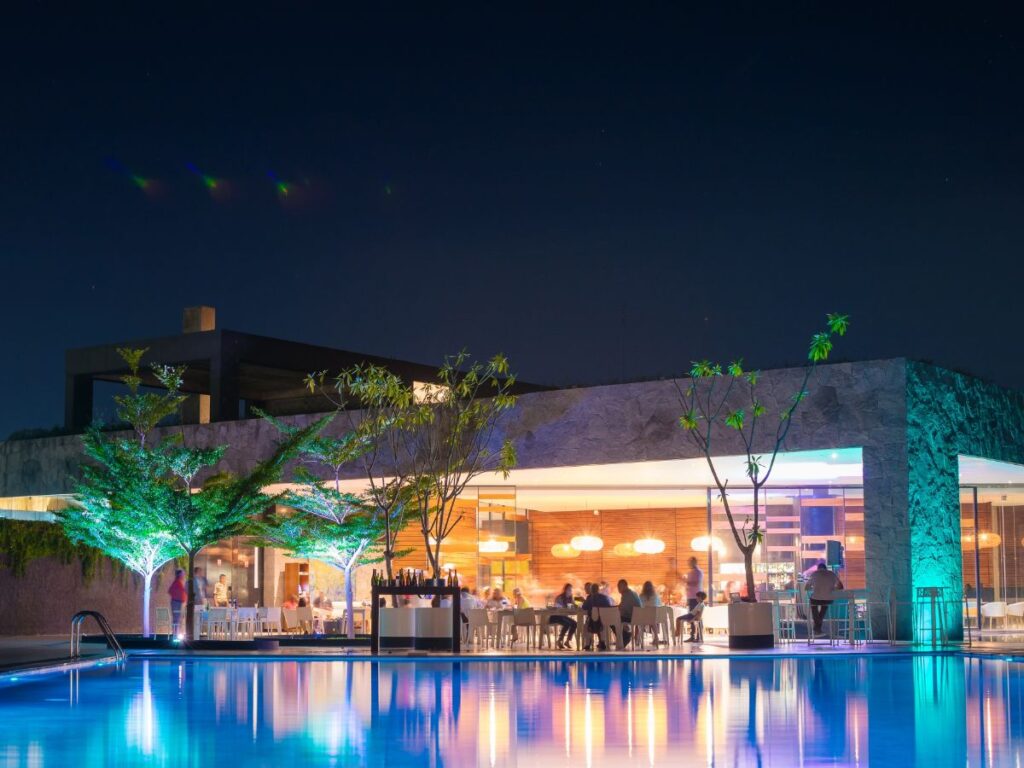
The hotel business has changed dramatically in the past decade; hoteliers face new challenges and expectations from hotel guests. Guests expect hotel websites to be easy to use, with clear information on hotel locations and hotel amenities. A hotel guest’s choice of where to stay is frequently influenced by the hotel’s website content. Hoteliers are starting to see the advantages of multilingual website localization. This article aims at explaining why localized hotel web content on your hotel website is crucial nowadays, how does it work and some technical features involved.
What is the purpose of hotel website localization?
Localizing your hotel website content is a crucial step to enter new markets. Web localization is the process of adapting an existing website for a target market by applying SEO techniques and translating content into different languages. It requires great foresight, imagination, and creativity to attract your potential customers in their own language and stand out against competitors with similar products and services. While English remains popular as a global language, people prefer top-quality hotel services provided in their native language.
Localization is a time-consuming process, but hoteliers gain significant benefits from it, including an increase in international sales and hotel guests’ loyalty. Specifically, hotel website localization enhances the hotel’s online presence by providing native language content to travel audiences that help hoteliers achieve better search rankings and build brand awareness.
It’s no surprise that hotel websites should be localized for major markets such as the US, the UK, Germany, France, and China because these countries have a rich history of tourism. However, hotels should also prepare their websites for other emerging countries where more people are buying foreign services online.
What content should be translated on the hotel website?
Pages with good conversion rates are good candidates for translation because you know there will likely be a lead conversion. If you’re not sure which pages are performing well, look at Google Analytics for the hotel’s website to see where users spend the most time on it. The website content that is most essential to hotel conversions should be translated after that. Hotel guests are lost or gained on the booking engine, which is the critical component of your website where hoteliers can gain or lose points. All hotel location pages, as well as hotel facilities and services provided, must also be translated.
Why should you translate hotel website content?
Every day there are more international travelers all around the globe looking for top-quality hotel services provided in their native language… that is why hotel website localization or multilingual SEO provides a significant competitive advantage for your local business while improving online sales and maximizing customer satisfaction. Although English has become the universal second language of business, people feel more at ease when receiving information in their own language.
Are there different types of hotel website localization?
Yes, there are two main types of hotel web content localization: Machine translation and professional human translation. Machine Translation is a computer-generated process that translates text or speech from one language into another using an artificial ‘international language’. This type of machine translation doesn’t take context into consideration and can sometimes give mixed results or seem unnatural.
Human Translation involves professional translators with native fluency in English and the target language, who adapt your hotel’s marketing copy by understanding business goals and hotel branding guidelines. The proofreading phase ensures proper sentence structure, accurate use of grammar and punctuation, idiomatic usage and proper spelling. It’s the recommended hotel website localization service as it provides hoteliers with text that is easy to read and understand, plus completely natural sounding translations.
Technical side of localization
Using a HTML hreflang tag attribute
To let Google know all of the language and region variants of a page, add ” <link rel=”alternate” hreflang=”lang_code”… > “elements to your page header.
Creating subdomains
Subdomains are one of the most popular options for constructing a multilingual website architecture. For instance, you may set up various translations of your site in different URLs.
The hotel industry is an ever-evolving and competitive field. Hoteliers must stay up to date with web design trends, the newest hotel technology, and new marketing strategies in order to win over first-time customers or those who have been looking for a change of pace from their usual hotel chain. With so many different options on the table these days it’s hard to find what you need. If you’re still unsure about which hotel website localization approach would be ideal for your company, don’t hesitate to get in touch with us!
Nothing would make us happier than working with you throughout this process.
Share This Post
Subscribe To Our Newsletter
Get updates and learn from the best
More To Explore

Blog strategy for the hotel
Blog strategy for the hotel The main reason for starting a blog is to grow website presence; the success of the blog could directly impact

Hotel Industry: Google Ads And Competition
Hotel Industry: Google Ads and Competition Google Ads is a fantastic tool for generating new consumers. It aids in the discovery of new visitors and


